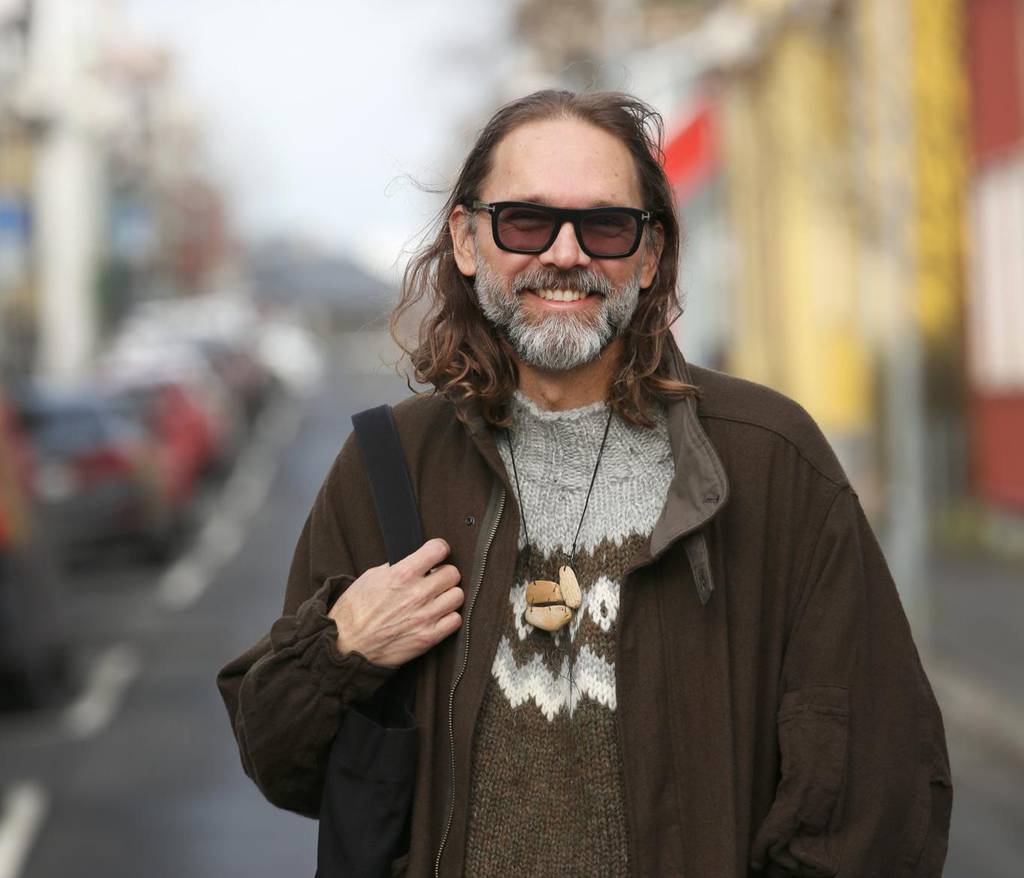“You are both fun and weird”: An American finds his rhythm in Iceland
Michael Hendrix's first visit to Iceland was in 2010, where he came for a conference in Harpa. A sunny, four-day bus tour around the Golden Circle sealed the deal. “I fell in love with the country.” Morgunblaðið/Ásdís
At a cozy café on Vitastígur, nestled among Reykjavík’s ever-stylish crowd, Michael Hendrix is already deep in conversation with an Icelandic actor when I arrive. Draped in a traditional Icelandic wool sweater and sipping coffee, Hendrix—an American with deep roots in both design and music—seems entirely at ease in his adopted home.
From the Appalachians to Reykjavík
Hendrix hails from the Appalachian Mountains in Tennessee, though he spent much of his adult life in the Boston area. His father grew up in extreme poverty without running water or electricity—an experience that shaped but didn’t define Michael’s own upbringing.
“I come from a musical family and was taught piano, but I didn’t really find myself until I discovered the guitar in my teens,” he recalls.
That creative spark led him into graphic design, which evolved over time into a broader exploration of innovation—how design can shape not just visuals but entire experiences, from services to corporate culture. Eventually, his two great passions—design and music—began to merge. He taught music at Berklee College of Music, led the design department at innovation giant IDEO, and co-wrote the book Two Beats Ahead: What Musical Minds Teach Us About Innovation.
Then came Iceland.
A Life-Changing Bus Ride
“Iceland came to me through the back door,” Hendrix says with a smile.
His first visit in 2010 for a conference at Harpa left him enchanted. A sunny, four-day bus tour around the Golden Circle sealed the deal. “I fell in love with the country,” he says.
What started as occasional family vacations turned into something more. After speaking at DesignTalks during HönnunarMars two years ago, he felt something click.
“I realized that people here understood me better than in America. This strange man with ideas about combining design and music—here, people got it.”
One year ago, he made the move permanent. Hendrix founded Huldunótur, a Reykjavík-based consultancy blending innovation, design, and cultural insight.
Designing the Intangible
Hendrix now works with Icelandic companies to tackle big-picture challenges. Recent clients include Brauð & Co and the Blue Lagoon. But don’t expect cookie-cutter design solutions—his process is much more holistic.
“Often, companies come to me knowing something’s missing, but they can’t pinpoint what. My job is to help uncover that and build a strategy around it,” he explains.
At Brauð & Co, he dug deep into company values—like high-quality ingredients, independence, and inclusivity—and designed a growth plan rooted in those ideals. “It’s a design challenge, even if the outcome isn’t something you can hold in your hand,” he says. “What I’m really designing is perspective.”
Music, Podcasts, and the Rhythm of Reykjavík
When he's not consulting, Hendrix is making music, releasing albums, and producing a podcast called Two Beats Ahead Live, where he interviews Icelandic musicians and other creative minds.
“Each episode tells the story of an artist through an entrepreneurial lens,” he explains. “It’s about their unstoppable passion to create something new.”
Hendrix sees enormous potential for Icelandic companies abroad—if they’re willing to meet international standards.
“Here, you can get by being average. But abroad, the competition is fierce. I’m helping companies prepare for that leap.”
His family—his wife and three children—visit regularly, and plans are underway to make the move permanent once they sell their home in the U.S.
Why Iceland?
So why Iceland?
“I love it here,” Hendrix says. “It’s beautiful, inspiring. But more than that, I connect with the Icelandic mindset—how people look at the world, how they solve problems with creativity and collaboration.”
And what does he think of the people?
He grins.
“You’re both fun and weird,” he says. “And I mean that in the best possible way.”
He’s come to appreciate the young but resilient spirit of modern Icelandic society—its independence, resourcefulness, and warmth.
“If someone needs help, there’s always a hand there. Reykjavík is an international city, and I love that about it.”


/frimg/1/53/30/1533092.jpg)





